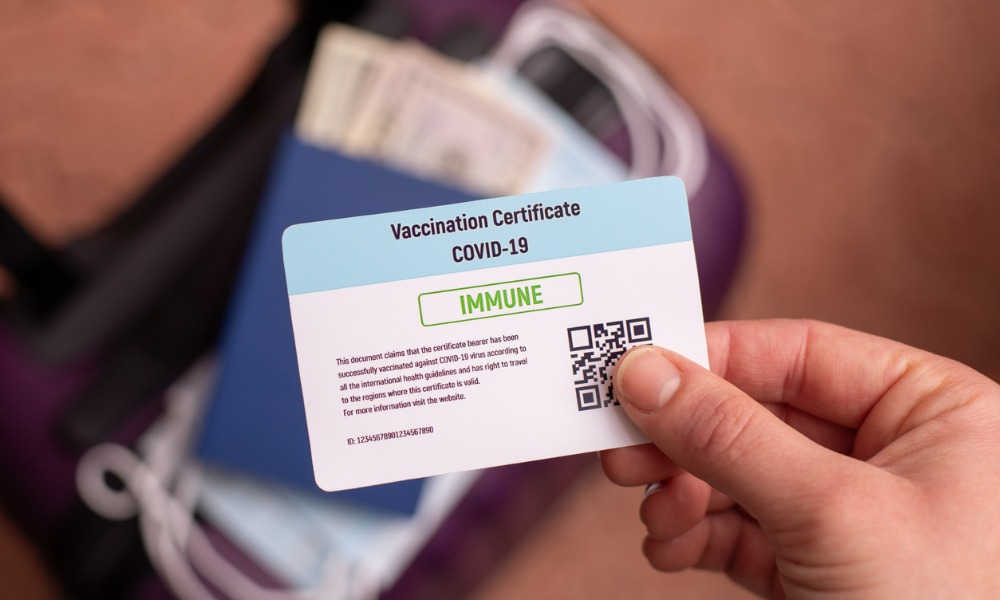
The guide comes amid the lack of province-wide vaccine proof in Ontario

The Ontario Chamber of Commerce (OCC) on Tuesday issued an independent proof-of-vaccination framework for businesses in the private sector amid the absence of a centralised vaccine proof from the provincial government.
The framework is called Vax-Pass Tenets, which was made in consultation with legal experts from McCarthy Tétrault.
"We are pleased to present a proof of vaccination framework to support organisations in their reopening plans," said OCC president and chief executive officer Rocco Rossi in a media release.
"We have said from the beginning that we support a centralised, Canada-wide approach to COVID-19 proof-of-vaccination that could be easily used to confirm vaccination status for international and domestic use," Rossi added.
"In the absence of government guidance on domestic applicability, we hope these principles can avoid a piecemeal approach in the province."
The framework comes after several businesses in the province began rolling out their own proof-of-vaccination policies, according to Rossi, as the framework aims to help other private sector companies in implementing similar programmes.
The Vax-Pass Tenets outlines five principles to consider in coming up with a proof-of-vaccination policy:
According to the OCC, implementing proof-of-vaccination will encourage more people to get the jabs and allow businesses to safely re-open amid the pandemic.
"Public health restrictions, such as capacity limits, could then be modified accordingly based on the lower risk involved with close contact among fully vaccinated individuals, achieving the dual purpose of safe community engagement and productive economic recovery," said the OCC in the release.
Read more: Vaccine passport confusion plagues businesses
The OCC's initiative arrived just a day before the government of Ontario denied that it will implement vaccine certificates.
On Wednesday, a spokesperson for the Ministry of Health told CBC that Ontario will not be issuing an official standardised proof of vaccination, such as a certificate, for businesses and establishments that have their own vaccine mandates.
According to the report, Ontarians can always print out their electronic vaccination receipt as proof - a solution hit by critics as such documents can be forged.
The statement of the Health Ministry came after Eastern Ontario Health Unit's medical officer of health Paul Roumeliotis earlier said on CBC-Radio Canada that "it is inevitable that the province will issue some form of official standardised proof of vaccination."
Some provinces, including Quebec and British Columbia, have already announced their plans to implement a proof-of-vaccination scheme in their territories.
Ontario Premier Doug Ford, however, remain firm against the move, claiming he does not want a "split society," according to a CBC report.